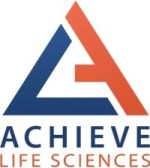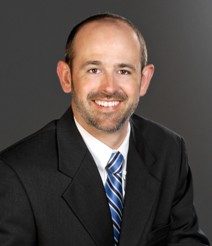
© CEOCFO Magazine -
CEOCFO Magazine, PO Box 340
Palm Harbor, FL 34682-
Phone: 727-
Email: info@ceocfocontact.com


Search





Business Services | Solutions
Medical | Biotech
Cannabis | Hemp
Banking | FinTech | Capital
Government Services
Public Companies
Industrial | Resources
Clean Tech
Global | Canadian
Lynn Fosse, Senior Editor
Steve Alexander, Associate Editor
Bud Wayne, Marketing
& Production Manager
Christy Rivers -








 Print -
Print -
Achieve Life Sciences – Advancing a New Therapeutic Option to Help the Millions of Smokers Who are Ready to Quit
 John Bencich
John Bencich
CEO
Achieve Life Sciences, Inc.
(Nasdaq: ACHV)
Contact
John Bencich
425.686.1539
jbencich@achievelifesciences.com
Interview conducted by:
Lynn Fosse, Senior Editor
CEOCFO Magazine
Published – December 14, 2020
CEOCFO: Mr. Bencich, what is the focus behind Achieve Life Sciences, Inc?
Mr. Bencich: Achieve is focused exclusively on the development and commercialization of a prescription drug called cytisinicline for use as an aid to smoking cessation and nicotine addiction. This product is unique in that it has been on the market in Central and Easter Europe for over twenty years, but it has never been approved in the U.S. or other major markets. Achieve’s goal is to obtain regulatory approval and marketing authorization in the rest of the world to help the millions of smokers, and potentially e-
CEOCFO: Would you explain how the drug works?
Mr. Bencich: The drug works in two distinct ways. First, cytisinicline blocks the nicotine receptors in the brain resulting in less satisfaction from smoking. In parallel, it also partially stimulates these receptors, so smokers continue to experience the buzz they receive from smoking, which helps to alleviate the cravings and withdrawal symptoms that make quitting so difficult. The combined effect of this dual mechanism of action is why the drug is so effective in helping smokers quit.
CEOCFO: Why has cytisinicline been off the radar screen here in the U.S.? What is the history behind it? Why did Achieve decide to take it on?
Mr. Bencich: The drug was discovered and is currently marketed in Central and Eastern Europe by the Bulgarian pharmaceutical company Sopharma. Prior to the collaboration with Achieve, which provides us with exclusive supply and rights to cytisinicline, Sopharma simply did not have the expertise or capabilities to expand beyond their core markets.
We believe cytisinicline has the ability to improve the health and well-
CEOCFO: What do you understand from your own past experiences to help guide Achieve through that FDA process?
Mr. Bencich: I have served in leadership roles at numerous biotech organizations with products in all stages of development; from pre-
CEOCFO: Why are you CEO now? Why have you taken over the realm and what might be different for the company under your leadership?
Mr. Bencich: I have been with Achieve since we went public in 2017 and previously served as the Chief Financial and Operating Officer. During that time, I worked very closely with our former CEO and now Executive Chair, Rick Stewart, who is one of the co-
Our operations are predominantly on the West Coast, where I am located, and Rick Stewart and Tony Clarke, our co-
CEOCFO: What has been the interest from the medical as well as the smoking cessation community?
Mr. Bencich: There has been a tremendous amount of interest, especially from researchers and clinicians in the field of smoking cessation. There has not been a product approved for smoking cessation in over a decade and the options that are currently available have a history of issues with side effects and black box warnings from the FDA. Even with Chantix®, the most effective smoking cessation treatment on the market, only 1 out of 5 quitters remains abstinent three months after completing treatment. Smokers need new solutions to help them quit and we believe a product like cytisinicline, that offers a shorter course of treatment and a more tolerable side effect profile, will be well received by smokers looking to quit.
CEOCFO: What about the investment community? Sometime, certain areas are more in favor than others for investors. Is smoking always of interest? What do you find today, in the COVID era?
Mr. Bencich: We are seeing much more interest over the last twelve months than we have historically. In part, that has been driven by COVID-
Overall, there are still more than thirty-
CEOCFO: Are you surprised so many people are still smoking or starting to smoke?
Mr. Bencich: Nicotine is the third most addictive substance in the world, behind cocaine and heroin. There are also very few treatment options to help smokers overcome their addiction. While the health warnings of smoking are apparent, the effect nicotine has on the brain is a powerful force to overcome. For those reasons, I am not surprised there remain over 1 billion smokers around the globe and nearly 34 million smokers in the U.S. alone.
We are also now facing a vaping epidemic that has led to even more people becoming addicted to nicotine. There are an estimated 14 million adults and roughly 30% of high schoolers using e-
CEOCFO: Development is always expensive. Are you funded for your next steps? Are you seeking funding, partnerships, investment?
Mr. Bencich: We are a biotech company and we are not currently selling our product, so we will always be looking for more funding. However, we did just initiate our ORCA-
CEOCFO: What did you learn earlier in testing that might have surprised you?
Mr. Bencich: That is a great question! Not really surprising, but what we continue to be impressed by the incredibly tolerable safety profile demonstrated by cytisinicline in numerous clinical studies, conducted both by Achieve and external smoking cessation thought leaders. One of the leading issues for smokers agreeing to use or staying compliant with cessation treatments is the adverse events. Specifically, with Chantix we know roughly 75% of users don’t complete their prescribed course of therapy and a majority state it is due to side effects like nausea and abnormal dreams. Many smokers won’t even consider Chantix given its historical issues with suicidality and the black box warning. We believe cytisinicline, when approved, will offer an efficacious and more tolerable option that will compel smokers to make a quit attempt.
CEOCFO: How are you reaching out to both investors and the medical community?
Mr. Bencich: We have a great group of external thought leaders that stem from key academic institutions that have been involved in historical smoking cessation product development and tobacco research for decades. We are working closely with these individuals to ensure our development program, and ultimately the drug itself, will best serve the needs of clinicians and smokers.
On the investor side, we are educating the community on the smoking cessation market and why there really is a critical need for a new treatment option. We have been successful over the last three years at attracting capital to further the development of this program and expect that to continue based on the interest we have seen.
CEOCFO: Why is Achieve Life Sciences important?
Mr. Bencich: Achieve Life Sciences is committed to advancing cytisinicline to address the global health smoking epidemic by providing a new cessation treatment option and hope to the millions of people who battle nicotine addiction. Tobacco use is currently the leading cause of preventable death that is responsible for more than eight million deaths worldwide and nearly half a million deaths in the U.S. annually. More than 87% of lung cancer deaths, 61% of all pulmonary disease deaths, and 32% of all deaths from coronary heart disease are attributable to smoking and exposure to secondhand smoke.
Achieve Life Sciences, Inc., John Bencich, Cytisine Smoking Cessation, Smoking Cessation Aids, Nasdaq: ACHV, Achieve Life Sciences – Advancing a New Therapeutic Option to Help the Millions of Smokers Who are Ready to Quit, CEO Interviews 2020, Medical Companies, Public Company, Global Companies, cytisinicline smoking cessation aid, cytisine smoking cessation aid, solving the global tobacco and nicotine addiction epidemic, α4β2 nicotine receptor, cytisinicline or Chantix®, cytisinicline versus varenicline, fight nicotine addiction, nicotinic acetylcholine receptor, Achieve Life Sciences, Inc. Press Releases, News, Blog, Investor Relations, Events, Twitter, Linkedin
“Achieve Life Sciences is committed to advancing cytisinicline to address the global health smoking epidemic by providing a new cessation treatment option and hope to the millions of people who battle nicotine addiction. Tobacco use is currently the leading cause of preventable death that is responsible for more than eight million deaths worldwide and nearly half a million deaths in the U.S. annually. More than 87% of lung cancer deaths, 61% of all pulmonary disease deaths, and 32% of all deaths from coronary heart disease are attributable to smoking and exposure to secondhand smoke.” John Bencich